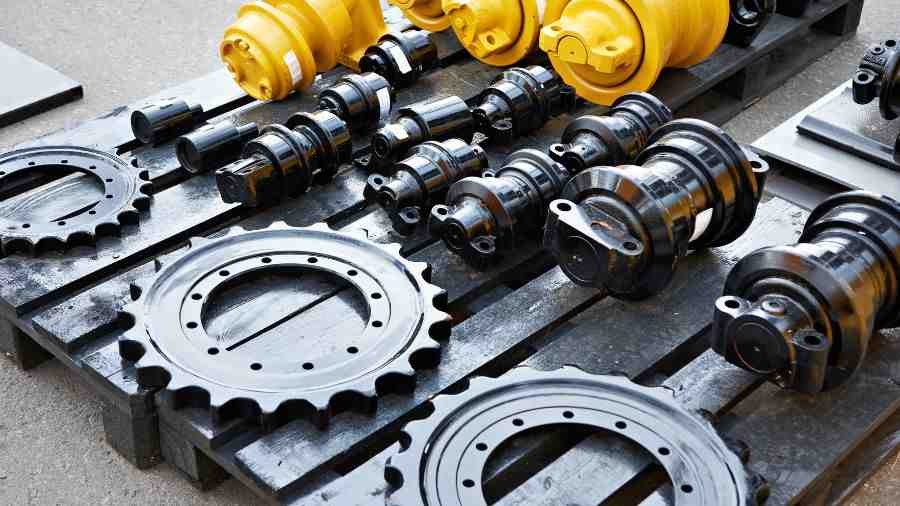Unveiling the Significance of Textile Machinery Components
04 May, 2024

In the dynamic world of textile manufacturing, the efficiency and performance of machinery stand as crucial pillars. Often overlooked yet essential, textile machinery components are pivotal in ensuring smooth operations and high productivity levels. These components encompass various parts, ranging from simple accessories to intricate mechanisms. Industrial textile machine parts, for instance, include gears, bearings, belts, and motors, all vital for the seamless operation of weaving, knitting, spinning, and dyeing machines.
The piece explores the critical role of textile machinery components in enhancing industrial efficiency, highlighting trends like increased demand for eco-friendly parts and the adoption of digital solutions in response to the COVID-19 pandemic. It provides valuable insights for textile companies aiming to optimize operations and stay competitive in the evolving market.
The demand for textile equipment spare parts is consistently rising as manufacturers strive to maintain uninterrupted production schedules. Downtime is not an option in today's fast-paced market. Hence, textile companies rely on reliable suppliers to provide quality spare parts at competitive prices.
Textile machine accessories are critical enhancements to existing machinery's performance and versatility. From advanced sensors to automated control systems, these accessories empower manufacturers to optimize processes, enhance product quality, and reduce waste.
Choosing the right suppliers for textile machinery parts is paramount in the competitive landscape of textile manufacturing. Trusted suppliers offer not only quality products but also timely support and expertise. By partnering with such suppliers, textile companies can minimize risks, streamline procurement processes, and stay ahead of the curve.
The textile machinery components market is undergoing a significant transformation with the emergence of advanced technologies like IoT, AI, and automation. These technologies are revolutionizing textile machinery operations, making production processes more efficient, flexible, and sustainable.
A notable trend in the textile industry is the growing emphasis on sustainability and eco-friendly practices. Consumers' increasing awareness of the environmental impact of their purchases has put pressure on textile manufacturers to adopt sustainable production methods. Consequently, there is a rising demand for eco-friendly textile machinery components, such as energy-efficient motors, recycled materials, and water-saving technologies.
The COVID-19 pandemic has accelerated the adoption of digitalization and remote monitoring in the textile industry. With travel restrictions and social distancing measures in place, manufacturers are turning to digital solutions to manage and monitor their production facilities remotely. This shift towards digitalization is expected to reshape the landscape of textile machinery components, with an increased focus on connectivity, data analytics, and predictive maintenance.
Textile machinery components are indispensable for industrial efficiency in the textile industry. Every component plays a critical role in ensuring smooth operations and high productivity levels, from industrial textile machine parts to spare parts and accessories. By staying informed about the latest trends and market insights, textile companies can navigate the evolving industry landscape and emerge stronger and more resilient than ever before.
